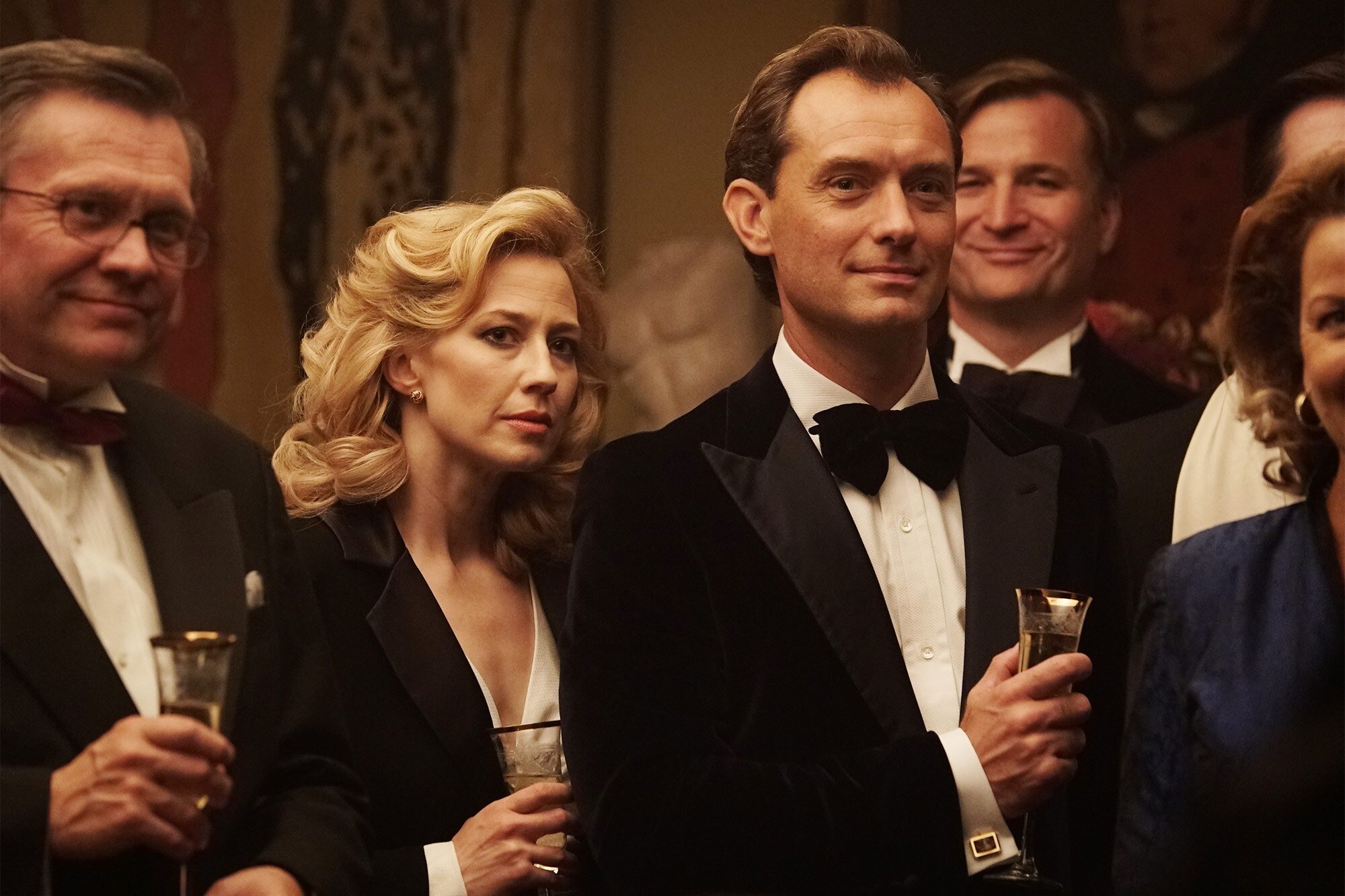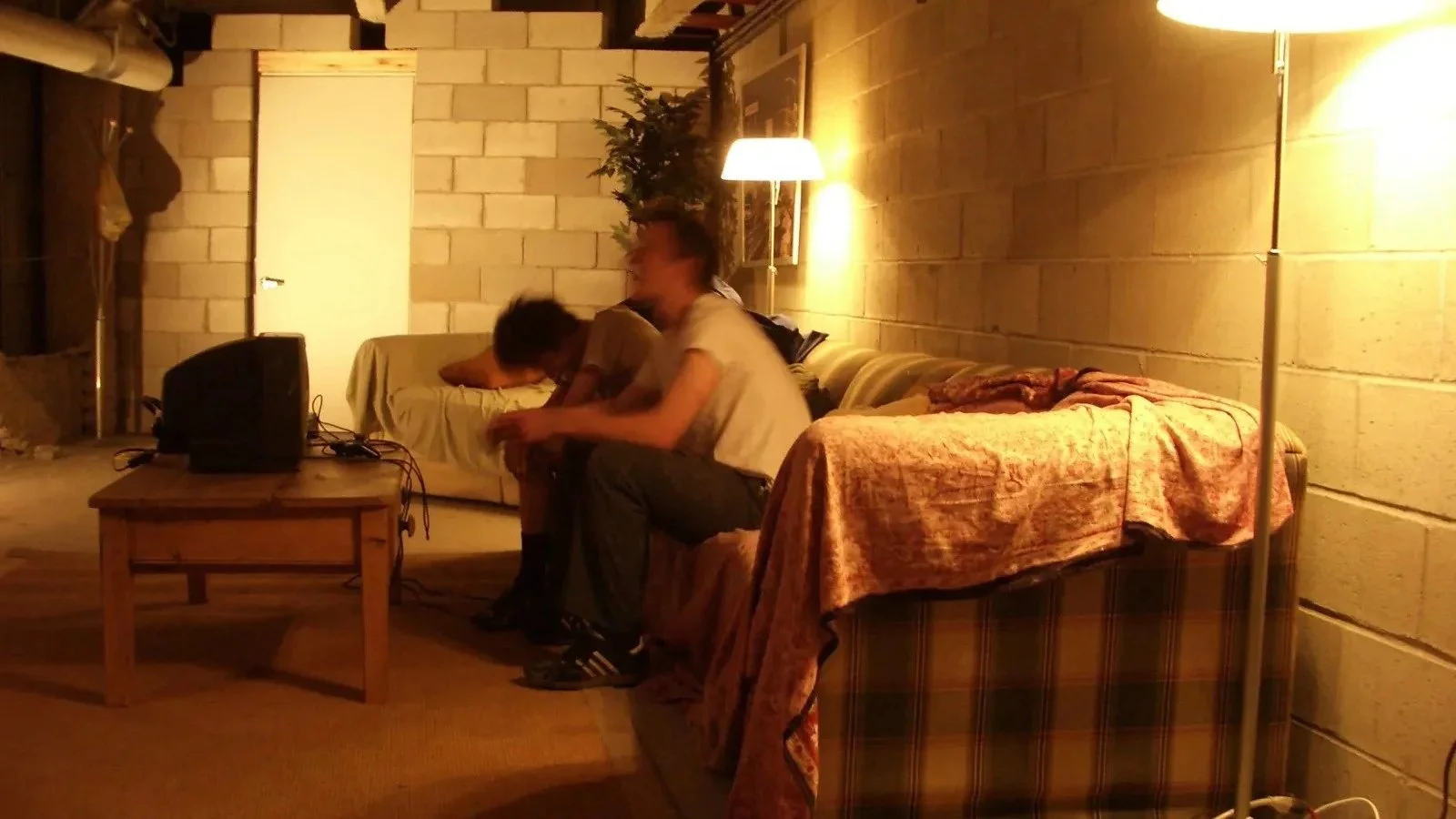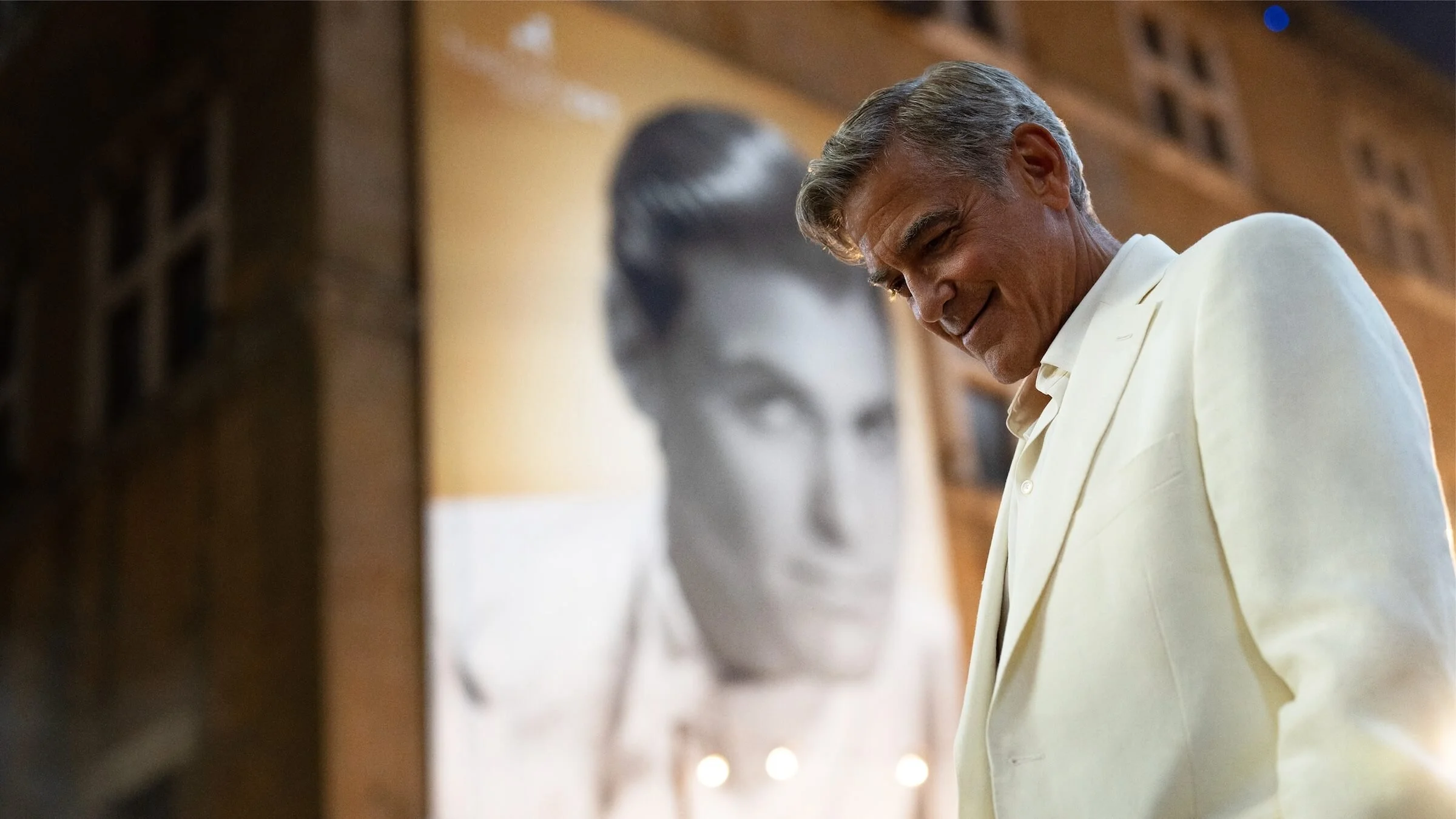Review: The Nest (2020)
It can be riveting to watch a human face, even if it’s not doing anything showy. Movies encourage us to do this more than any other art form because of the close-up, which can be marvellous when used correctly. When the moment is right and the dramatic scenario is set and the viewer is dying to know what’s happening inside the mind of the character, a close-up can be like a beam of light parting the heavens. It can be pure illumination. Such a shot occurs about a third of the way through Sean Durkin’s period drama, The Nest.
After moving to Surrey, England with her stockbroker husband, Rory (Jude Law), Allison O’Hara (Carrie Coon) attends a black tie dinner party along with Rory and his new coworkers. Rory’s jowly boss (Michael Culkin) toasts Rory’s hunger and acumen for sales, and he tells a story about how Rory phoned him up six months ago and planted the idea for this job in his head. Everyone laughs, but not Allison, because what he’s saying doesn’t mesh with what Rory told her. As Rory told it, he was called up out of the blue and offered a chance to move back to England for a job he couldn’t turn down. Apparently he could’ve turned it down. Allison and him and their son, Benjamin (Charlie Shotwell), and her daughter from a previous relationship, Samantha (Oona Roche), could’ve all stayed in New York where they had a beautiful house and a stable life after years of moving around for work, but that’s not what happened. Rory took the job and now Allison’s stuck in England, in this room with her husband who lies.
Allison watches the speech standing next to Rory and other guests all decked out in their finest evening wear. At first she’s smiling politely, but her eyes start to waver. Her smile fades. It comes back, but it no longer seems genuine. Her eyes betray the trouble. Sean Durkin and cinematographer Mátyás Erdély hold on Allison’s face as they dolly in and the frame shrinks from a wide shot of the crowd to a close-up. As we get closer to Allison’s face, she gets noticeably more uncomfortable. There’s nowhere for Allison to hide. We get to see the thoughts behind her eyes, the flush of embarrassment turns to betrayal and rage at the husband who lied to her. We get to watch Allison come to the realization about who her husband is. And we get all this without her saying a word.
That’s the power of a close-up. To be sure, it takes a performer as deft as Carrie Coon to pull it off. She finally gets a big-screen role the caliber of her Nora Durst in The Leftovers, the small screen role that made her famous. And it takes a director like Martha Marcy May Marlene director Sean Durkin, who doesn’t use the close-up as a crutch. But when the stars align, the performer and the camera unite in perfect service of the story. It’s beautiful and riveting.
The drama at the heart of The Nest is contained in this moment of Allison’s realization, but the rest of the film is superb. There’s nothing surprising about the narrative direction of the film, as the O’Hara family is doomed from the moment they move into the cavernous mansion in Surrey—the “nest” of the ironic title and the carcass of a home for people far richer and more powerful than they are. But there doesn’t need to be misdirection or narrative surprise in this sort of story. There’s enough drama and emotion in every family confrontation and enough craft behind the camera that the conventional trajectory remains enthralling.
We watch the O’Hara family struggle to adjust to their new home and in their failure to do so, they turn on each other. The massive home they live in is a triumph of art direction and offers a perfect space for the director and cinematographer Erdély to stage this breakdown. Erdély is one of the best in the business, having shot Son of Saul and Sunset, both features from his fellow Hungarian native, László Nemes. In The Nest, Erdély uses his patented soft focus and deep shadows to transform the O’Hara home into a haunted house. The shadows swallow up the O’Haras in the corners of rooms. As well, the way Durkin and Erdély frame them in the massive expanses of the home emphasize the scale of the building and show how impossible it is for Rory to ever earn enough money to buy things to fill the whole place.
The house acts as a metaphor for Rory’s pathological need to pretend to be more than he is. It’s apparent to anyone outside of the family that the home is too big and ill-fitting for them, even if they were rich. It’s the home of an Enlightenment aristocrat, not a stockbroker with an American wife and two kids. But Rory refuses to acknowledge this fact. The whole family does, in their own way, but the way that Jude Law plays this refusal is particularly stunning. Law’s charm has always seemed something of a con, even in films where he’s the uncomplicated good guy. There’s too much mischief behind his smile. In The Nest, that smile is something more of a grimace, trying to mask the pain of his own self-hatred and twist it into something appealing. The man’s a shark and doesn’t realize it.
The film plays heavy with metaphor in its treatment of the house and the predictable breakdown in the relationship between the couple and their children. Benjamin gets in fights at school. Samantha starts hanging out with riffraff. They fracture like glass under the pressure of their parents. Allison tries to channel her anxious energy into training her horse, a brilliant black stallion named Richmond. But Richmond refuses her training. He’s easily agitated and grows ill, as if infected by the rot of the home and family. His decline dovetails with the family’s breakdown. The film’s sole misstep is a later scene with the horse, where it becomes evident that Durkin may have never heard the old cliche about “beating a dead horse.”
Aside from that, the film is without blemish. It’s captivatingly shot and brilliantly acted by two performers with considerable talent. The whole film has something of the atmosphere of a horror film. The characters seem cursed and you’d swear the family was haunted by ghosts in the Surrey home. In a way they are, but not of the horror movie kind. This isn’t a horror film in the conventional sense. It’s a marital nightmare in the vein of Who’s Afraid of Virginia Woolf? and Revolutionary Road. It’s the kind of film you dread watching with your spouse, just as you dread going back to sleep after waking from a bad dream because you worry you’re going to see something you recognize that chills you to your bone.
9 out of 10
The Nest (2020, USA/UK/Canada)
Written and directed by Sean Durkin; starring Jude Law, Carrie Coon, Charlie Shotwell, Oona Roche, Adeel Akhtar, Michael Culkin.



Joe Carnahan’s cop thriller starring Matt Damon and Ben Affleck is an enjoyable whodunnit.